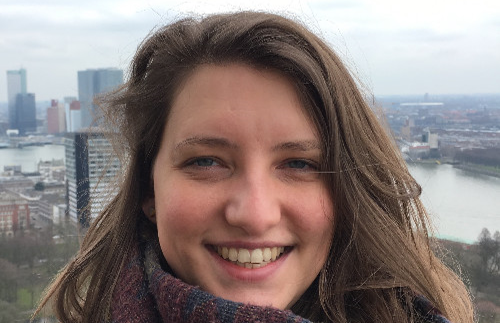On 25th January, at 11h30, the seminar entitled “Managing our land back to the future: making use of the vantage point of geophysics” will be held by Dr. Ellen Van De Vijver, Ghent University.
Abstract
Sustainable land management is a critical aspect in tackling the challenges related to urban development and climate change. Geophysical survey methods outcompete conventional invasive sampling methods in time and cost efficiency in providing spatially comprehensive "insight" in subsurface variations. Therefore, they provide interesting tools to use in improving our understanding of prevailing subsurface conditions and their relation to past – natural or anthropogenic – interventions.
The Research Group Soil Spatial Inventory Techniques of the Department of Environment at Ghent University focuses on finding smart ways to use geophysical data and geostatistical methods for the characterization of the near subsurface to understand better our human living environments. Combining expertise from various geo-related disciplines, such as environmental and natural resources engineering, geology, landscape archaeology and geophysics, our team thrives on an integrated and pragmatic approach to the development and implementation of innovative techniques for land inventory and management. Two specific topics being actively researched are the probabilistic processing of electromagnetic data to improve the characterisation of landfills and magnetic mapping of atmospheric particulate matter pollution.

Ellen Van De Vijver (°Ghent, 23 January 1987) obtained the degree of Master in Bioscience Engineering in Environmental Technology at Ghent University in 2010. From 2010 to 2017, she worked as teaching assistant at the Department of Soil Management. Her doctoral research was developed within the Research Group of Soil Spatial Inventory Techniques (ORBit) and focused on the application of non-invasive proximal sensors for the characterization of soil in urban and industrial environments. Through collaboration with environmental consultants and the Public Waste Agency of Flanders, her research has been tailored to application in a real-world setting. During the same period, she supported educational activities through teaching of the practical exercises of various master courses, such as Geostatistics and Contamination and remediation of soils.
Since obtaining her PhD degree in Applied Biological Sciences in September 2017, Ellen continues her assistantship at a postdoctoral level at the reformed Department of Environment at Ghent university. She aims at advancing her research track on the common ground of urban land management, near-surface geophysics and spatial data analysis, with specific attention to targeting the challenges involved in dealing with the extreme heterogeneity of anthropogenic soil. Besides her research activities, she currently contributes to the education organised at the Faculty of Bioscience Engineering as responsible lecturer of several bachelor and master courses on the topics of environmental inventory techniques, sampling strategy design and geostatistics.
